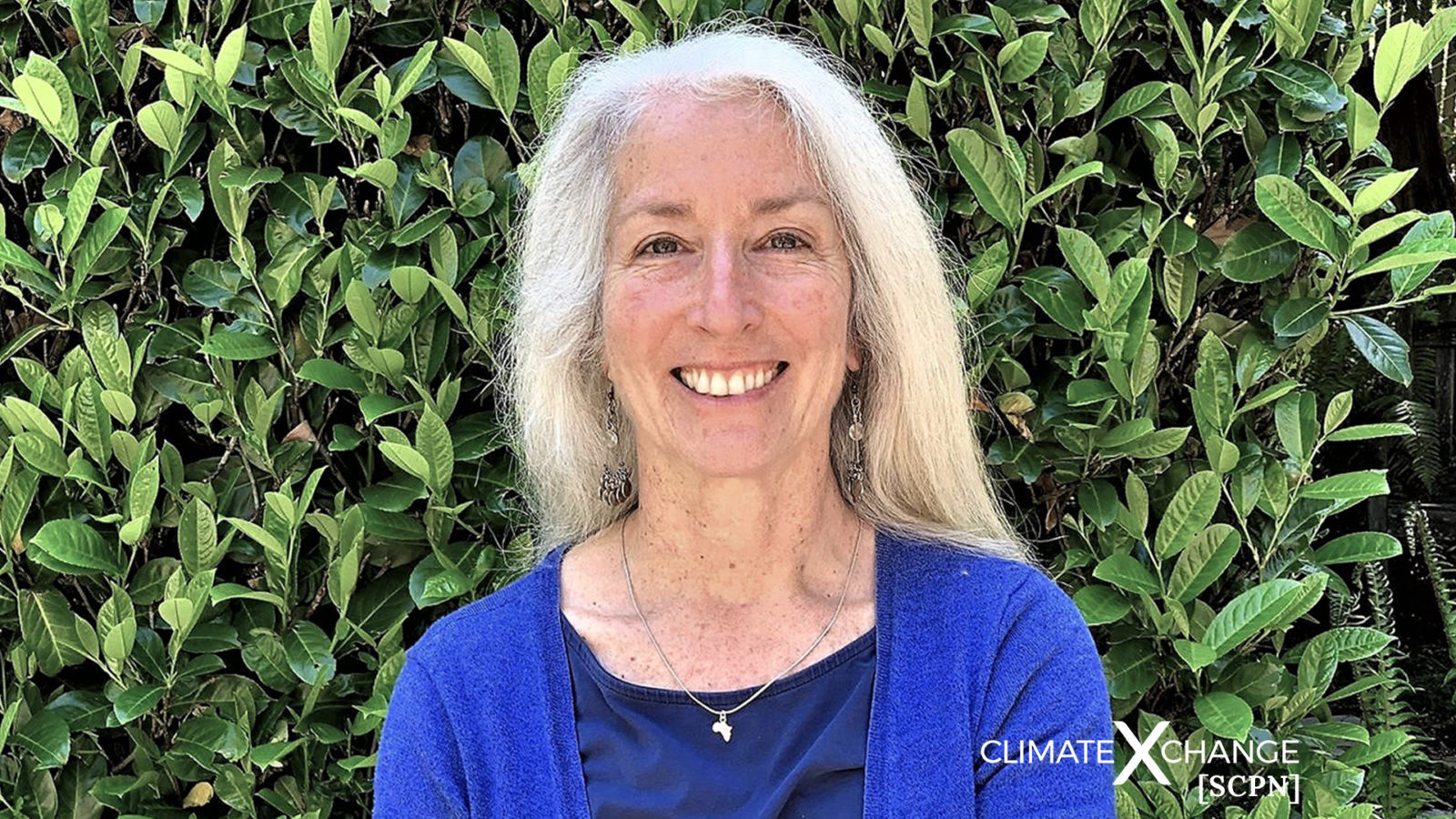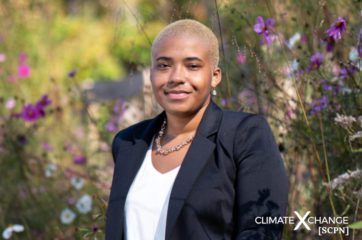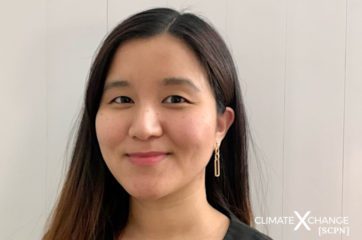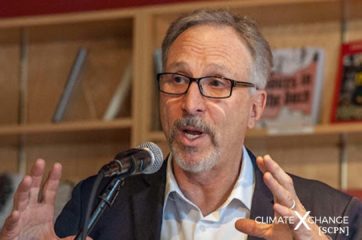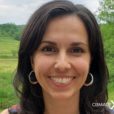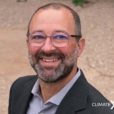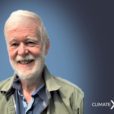All across the country, members of our State Climate Policy Network (SCPN) are fighting to make an impact on climate change in their communities. We have individuals in our Network from all 50 states, each experiencing climate change differently in their local areas and finding unique solutions to build resiliency efforts.
This week, we poke to Phoebe Barnard, PhD. Dr. Barnard is a biodiversity conservation biologist, climate risk and resilience specialist, global change ecologist, environmental futures analyst and sustainability strategist. She is Chief Scientific and Policy Officer with the Conservation Biology Institute. Before moving back to the States, Phoebe developed and ran national climate and biodiversity planning and research programs in Namibia and South Africa. She works at the intersection of science, society, sustainability, policy, planning and media storytelling.
Ava Gallo
Just to get started, can you give me a brief overview of your background?
Phoebe Barnard
Sure. My name is Phoebe Barnard, and I’ve always been fueled by a particular passion in my belly for making the world a better place. The world doesn’t have to be this way. We can actually just change it.
I studied science straight through to PhD level, but I’ve probably always been too right-brained to be a great scientist. I was successful in science less through my patience with tiny details, and more through my ability to bring people together on collaborative, international teams.
But my day job is Chief Science and Policy Officer at the Conservation Biology Institute. I work across the value chain from problem solving and developing data strategies with professional and citizen science, straight through to planning, policy, and management. So my main interest is how all of these things support each other and reinforce our ability to make big, ambitious, transformative change in society.
Ava Gallo
Can you elaborate a bit more about how you transitioned from this science background into more policy making and coalition building in the climate space?
Phoebe Barnard
Well, I still work in science, but I realized that while science on its own is an important part of the solution, it’s only a tiny part. More of our solutions are intrinsically social and economic rather than technical or scientific. For much of my career in southern Africa, I found myself drawn to jobs within government but with one leg in academia, which enabled me to do much more impactful work than just working in academic science.
We were able to achieve more transformative change by linking robust evidence to influence national development policy, planning and management in Namibia and South Africa. So returning to the United States only a few years ago, after being away virtually my whole adult life, I wanted to get stuck into big “wicked problems” and apply collaborative science, policy, and planning solutions to help accelerate climate resilience and adaptation.
Ava Gallo
What was the impetus to return to the United States after living in southern Africa for such a long time?
Phoebe Barnard
As with many people, there were several reasons. In some ways I could refer to myself as a climate migrant too. I’d been working for some time in a government-funded job that became increasingly full of brick walls that I found it hard to punch through. I couldn’t grow my own food there, water security in Cape Town was extremely low, and while I had job security, I had an aging mom in the USA who wanted me closer.
Financially, I felt like I was getting poorer and poorer working with a soft currency and putting aside savings that would not convert to anything in US dollars or Euros. And finally, my daughter and her roommate were jumped one night by a gang of thieves, and her roommate was stabbed. We decided it was really time for a change.
So I took early retirement from my lead-scientist job in a national institute, and started looking for jobs in Europe and in North America. Eventually, I chose one of a couple of offers in North America, out here in Washington State.
Ava Gallo
Are you a big gardener?
Phoebe Barnard
I am becoming a big gardener, but with baby steps. It’s amazing, after living in arid countries in southern Africa for much of my life, to put down a stick to stake your tomatoes, and it sprouts leaves! We’ve got such amazing soil fertility and water availability here and a seasonal climate that is great for growing vegetables. So I am now developing a community vegetable garden as part of my own neighborhood’s risk and resilience strategy.
Ava Gallo
Awesome. I would really like to get more into gardening. My dad has always had a very big garden in our backyard.
What lessons do you bring from your time working in the African space back to the United States?
Phoebe Barnard
Well, I have realized what a privilege it was to be able to work in government in Namibia and South Africa at pivotal points in those countries’ histories. Namibia was just navigating its independence from South Africa after a long colonial history involving England, Germany, and South Africa.
And South Africa was navigating its transition into post-apartheid democracy. In those times it was possible to really have a huge, bubbling honeypot of energy, ideas, innovation, and collaboration about where the country should go. We asked, “what kind of society do we want here, and how are we going to get there from here?”
Coming back to the States in early 2017, ten days before the inauguration of Donald Trump, it seemed as though the country was a fixed Titanic heading for an iceberg. It was very difficult to make any kind of changes, and getting only more so. The country was not in the habit of asking what kind of a society it wanted, or how to get there. It still believed it was exceptional.
Subsequently, I think COVID and bad leadership have forced us to question ourselves as a country over the past few years. For better or worse, it has forced us to take stock of who we are, and where we’re going. That in itself is a blessing.
One lesson that I’ve learned in my privileged 34 years of being able to influence national development in Namibia and South Africa was that questioning the values and goals of a society is always important, and we can never do enough of it.
Secondly, having the ability to put together teams without undue restrictions of siloed institutions or piecemeal funding is profoundly important for being able to help countries move ahead. At the moment, we are still dealing, in the U.S., with a system that has a lot of fragmented agencies and organizations that cannot break out of their silos and very restrictive piecemeal thinking and funding. Until we enable a big transformative pot of funding that helps us deliver a resilient, green economic recovery that enables a transition into a new economy, and helps us deal with the climate risk and resilience adaptation space in a proactive way, then we will struggle.
The pandemic has enabled us to understand those issues a little bit more than we did before in this country.
Ava Gallo
I definitely agree and talked about this in my interview with Melinda Hanson about how the pandemic has demonstrated that these barriers that seemed impossible to cross turned out to be easier to cross than expected. A lot has changed because of the pandemic that I think will really start to change the way we live our lives going forward. Amongst the tragedy, it is nice to see that shift, particularly in the United States.
Phoebe Barnard
I think that Melinda and I are saying very much the same thing: believe in the possible; explicitly imagine the outcome; and encourage innovation and experimentation at local levels.
I was on the board of the Millennium Ecosystem Assessment, a big, transformative, global program, looking at the status of ecosystem health around the world and the ability of those ecosystems to support human health and wellbeing and economic activity. That experience showed me that of the four scenarios that we developed in that process, the one seen as most conducive to a favorable, sustainable post-carbon economic outcome was called ‘adapting mosaic.’ It was a scenario in which local communities experimented with better ways of using resources, relying on each other for talents and skills, and having different kinds of governance. Kind of like the Transition movement, really.
I think we are seeing a retraction of our hyper-globalized world in a way where we will see much local experimentation.
Ava Gallo
I certainly hope so! So now you are working at the Conservation Biology Institute. Can you talk more about your role there and what you have been working on the past four years?
Phoebe Barnard
So my involvement in Climate XChange’s State Climate Policy Network has been mainly as a “fly on the wall.” I don’t work in carbon pricing policy, but want to keep my eyes and ears open on what’s happening, as it affects the work we do in spatial planning, and ecosystem and energy risk management. I listen to a number of the calls that Noa hosts, and learn a lot from them.
My role at CBI is Chief Science and Policy Officer, a strategic leadership position. There are five of us on the leadership team, and I’m profoundly grateful for my colleagues who are lovely, visionary, insightful, hardworking, and heart-centered people. I’ve interpreted my role partly to help take the work of the organization, which has traditionally been around a specific, but highly important ecosystem and biodiversity field, much more explicitly into the climate risk and resilience space.
One of the key things that we do that other conservation and spatial planning organizations don’t do is to provide collaborative spatial decision support systems that help tackle big wicked problems and grand challenges like sea level rise and climate migration in a conflict-resolving way. We enable people to work together with web platforms that allow users without any technical or GIS background at all – ranchers, mayors, public watchdog groups, lawyers or developers – to share maps and ideas so that they can work together and look at alternative scenarios for any particular problem.
That is fundamental to the work we all need to do in the climate risk and resilience planning space. We don’t have to head into a situation where the predominant response of this country will be reactive. We can plan and prepare for a managed retreat from the coast. We can plan and prepare for climate migration on a significantly accelerated level, and be able to embrace these and have economic growth happen through them, not in spite of them.
Bringing the science and ecosystem health and spatial planning together with the conflict resolving and equity processes, I think, is really what excited me about joining the Conservation Biology Institute, and I think that our mostly-free flagship platform, called Data Basin, is one of the most powerful tools we all have in enabling people to work through conflicts and find solutions.
Ava Gallo
Thank you for sharing that with us! As a person with a science background working in the climate policy space, what do you wish that climate advocates without that background would do differently as they tried to make change on climate?
Phoebe Barnard
I think there are a lot of human behaviors that all of us need to be careful not to fall into traps over. One is that we get hung up in parallel universes about the economy and finance. In reality the criteria that we need to use in considering alternative futures are so much broader than narrow financial or economic considerations.
Anyone who is in carbon pricing knows that, because we are all trying to achieve a new economy that works better for people and the planet. Nonetheless, sometimes it’s hard for people to remember those kinds of things, that we need to simultaneously look at policy goals pertaining to human health and wellbeing, economic activity, ecosystem health, and so on.
Secondly, I think that many humans have a tendency to find disagreements rather than commonalities. Even in the carbon and environmental spaces, there is still a completely unacceptable level of disagreement and finger-pointing. We should be able to recognize that we’re all working towards the same end. We have to set aside petty differences, stop bickering, and stop disagreeing on whether it is overpopulation or hyperconsumption, or whether it’s cap-and-trade rather than some other model. We need to work through differences to find solutions. I’m confident that with tools like this, and a simple focus on the enormity and urgency of our problems, we’ll be able to resolve those and many other specific conflicts.
But all of us need to keep our eye on the ball. We don’t have much time. Rome is burning, and we need to accelerate our rate of change, and enable policy and economic reforms to happen as smoothly as possible. Because, honestly, we are dealing with a loaded deck in the United States with a very divided country. A lot of people don’t take well to anything about public policy or top-down solutions. But we need to encourage top-down solutions, bottom-up solutions, sideways paradigm shifts, and everything in between.
Ava Gallo
Coming out of this very polarizing, contentious election, how do you see the United States, and subsequently the entire international community, moving forward on climate now with the election of President-elect Joe Biden?
Phoebe Barnard
I am hopeful, but I have known for a long time that the systems are broken, and they probably need to crack open at some really fundamental level, before they can be rebuilt in a conducive way. Joe Biden and Kamala Harris are inheriting a very difficult situation, and I don’t think we can hope for a big transformation without control of the Senate. I am neither a Democrat nor Republican, but I want to see big change, as we all do.
Both nationally and internationally, we have to really be prepared to take bold and unpopular decisions about policy, governance, and the economy in ways that are mindful that we have less than a decade to make fundamental drawdowns of carbon from the atmosphere.
The single most important thing that I would like to see every country on the Earth do is to invest in natural solutions by stopping unnecessary land transformation. We don’t even really challenge land clearing at the moment in this country, although it is challenged in many other countries. We’ve got to stop habitat loss as soon as we can and use the existing transformed land much more effectively for food security, human settlements, energy production, and so on.
That means densifying ourselves in the existing disturbed land and diversifying our uses of that same land.
Densifying is not an easy thing to consider in the middle of a pandemic. We have to do that in a way that remains healthy for people in their interactions. But we cannot solve the climate crisis without (a) changing the way that we use land, (b) managing our forests for carbon and biodiversity, and (c) actively restoring land. Those are my three big wishes for all countries on the planet right now.
Ava Gallo
Hopefully we start to see some of those bold, unpopular actions that will get us there. I want to pivot a bit. Looking through your website and learning more about your work, I noticed that you have been a constant mentor to young people all over the world throughout your career. What role do you think that mentorship plays in the success of the climate movement and what do you think that young climate advocates have to learn from more seasoned advocates and vice versa?
Phoebe Barnard
Well, “and vice versa” is the key. I’ve been involved in a number of academic mentorship and personal coaching roles, but I almost always feel as though I’ve learned as much from my mentees as they may have learned from me. I think the role of personal inspiration and leadership is absolutely pivotal right now. Even if we can only encourage one other person into a role of productive purpose that is enough. But if we can simultaneously take ten or fifty people and help to transform the way they live their lives, that is a really fundamental thing.
The current youth-led climate movement around the world needs to be giving a swift kick up the butt of all of the baby boomers on this planet, because it is far too easy for people my age, I’m 59 now, to say “oh isn’t it wonderful. The youth will save us.” That’s not acceptable. That’s just washing their hands of a whole lifetime of excessive consumption and perhaps excessive childbearing too. It’s not okay for people to wash their hands of it.
Rather I would hope that people of all ages are going to be inspired and actively support young champions of the climate movement, especially to help them change public policy to make things work better. Adults are in the right place to do that, and not always kids or even twenty-somethings. We need to work together and stop finger pointing. (I’ve just done some finger pointing myself, but we cannot afford that!) Everyone’s got to figure out what their superpower is, and use it to bring about transformative change.
Ava Gallo
I love that. I think that’s great. We could use a little bit of people learning from one another instead of feeling like opponents a lot of the time.
I noticed on your website that you call yourself an “environmental futurist.” Can you elaborate on what you mean by that?
Phoebe Barnard
I realized quite early on in my life, when I was just a kid really, because we had a lot of science fiction in our house, that a few things have great power in this world. One is imagination and scenarios of alternative futures. Another is the power of film to engage people in the way that science and written facts do not. A creative amalgamation of those can really help. This is why I’m absolutely thrilled to be married to a filmmaker who also works for change in the big, fundamental issues affecting society.
But looking at environmental and societal futures – and I use the two together because we cannot separate society from the environment – is crucial to show what will happen if we continue on this current road, versus what can happen if each of us makes some level of change in our lives. With nearly 8 billion people on the planet, the power of change is massive. But until we are looking into the future, we often cannot see the consequences of the present.
Ava Gallo
I think that is a really great term – environmental futurist – and I might continue to use it!
I’d like to conclude by asking, over your career what has kept you motivated to continue working on climate?
Phoebe Barnard
Just about everything! My children, my husband, the beauty of the forests and the mountains that I run in, my puppies, the energy and momentum of forces for change. I am really lucky to have been born with an inveterately cheerful DNA. I don’t easily get discouraged, but I do sometimes weep. It is hard to work on biodiversity loss and climate change without having moments of great despair. I can’t pretend I don’t.
Fortunately, those times don’t stick with me. Everything I do and see around me motivates me for change, because I have seen the future in a way that each of us can do. That in itself is enough motivation to try and shift that tipping point as soon as possible.
Ava Gallo
Absolutely! Thank you so much for this interview. I really enjoyed having this conversation on a very cloudy, grey day in Boston. It was a bit of a light in my day.
Phoebe Barnard
It is lovely to meet you. I hope we can talk again some time. I’d love to hear more of your story. Thank you so much for approaching me. It is kind of you to do so, and I hope this will be useful!

